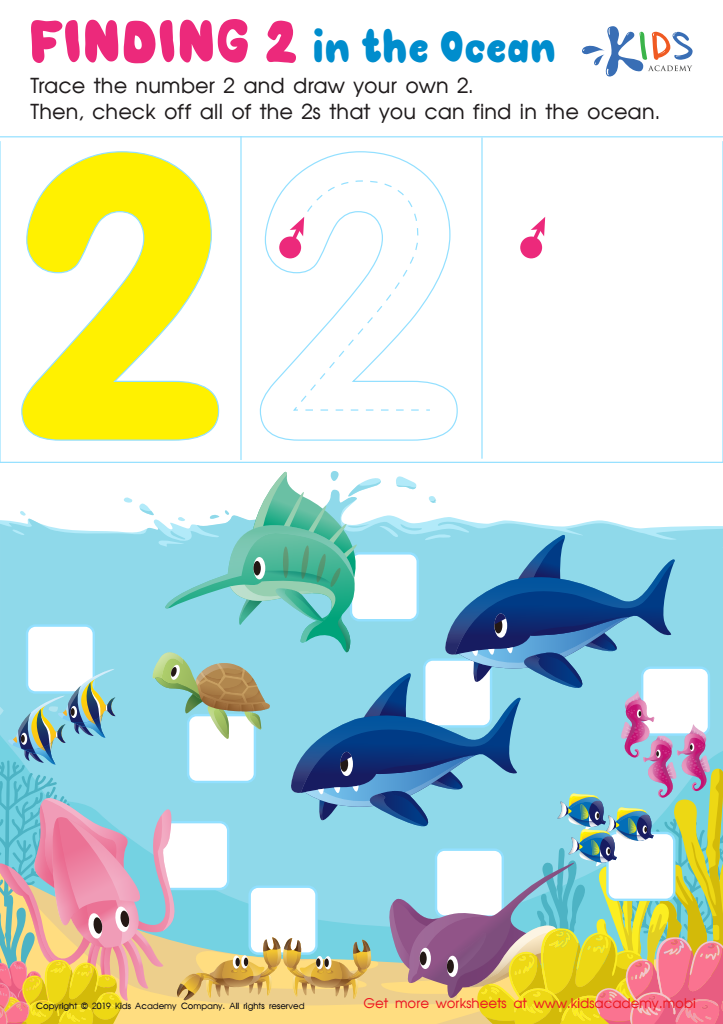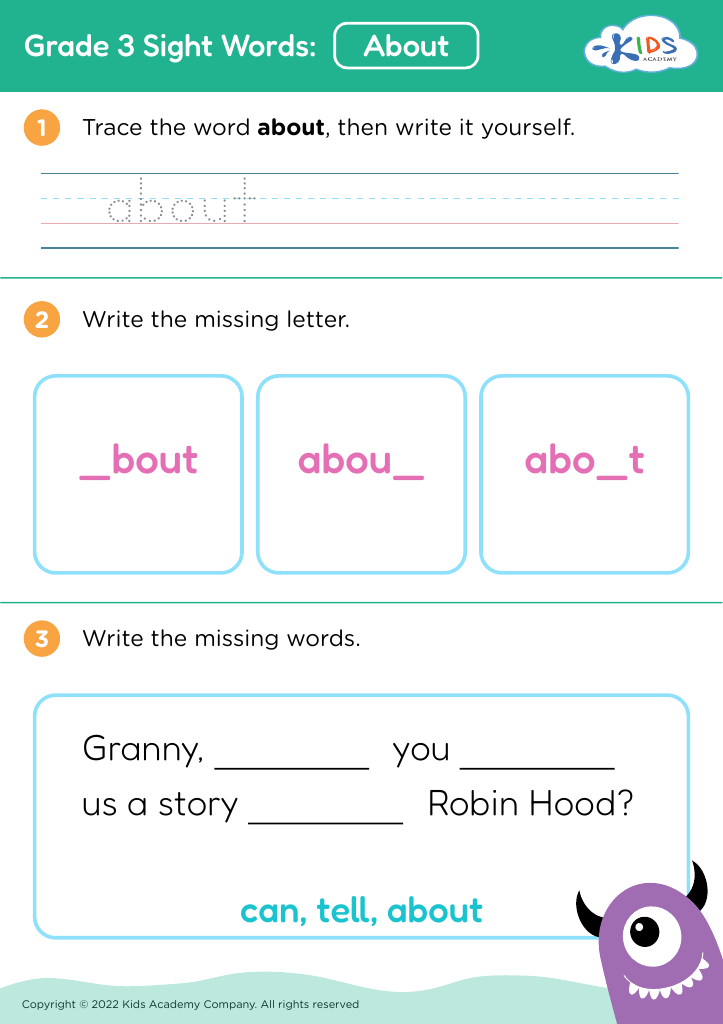Understand number sequencing Worksheets for Ages 6-9
3 filtered results
-
From - To
Unlock the world of numbers with our "Understand Number Sequencing Worksheets" designed specifically for kids ages 6-9! These engaging worksheets help young learners grasp the essential concepts of number sequencing, promoting critical thinking and problem-solving skills. Through a variety of fun and interactive exercises, children will enhance their ability to recognize patterns, order numbers, and comprehend number relationships. Perfect for classroom use or at-home practice, our worksheets cater to different learning styles and encourage mastery of foundational math skills. Empower your child to become confident in their mathematical abilities while enjoying the process of learning with our comprehensive resources!


Finding 2: In the Ocean Worksheet
Understanding number sequencing is crucial for children aged 6-9 as it lays the foundation for their mathematical skills. This foundational skill enables children to grasp the order of numbers, which is essential for addition and subtraction, facilitating their overall problem-solving abilities. Without a solid understanding of sequencing, children may struggle with more complex mathematical concepts in the future.
Moreover, recognizing patterns in number sequences develops critical thinking skills and enhances cognitive growth. Engaging with number sequences helps children make connections between numbers, fostering their ability to predict and interpret data, which is vital in everyday life. Additionally, sequencing supports literacy skills by encouraging children to pay attention to order and detail, skills essential for reading comprehension.
For teachers, incorporating number sequencing into lessons can make math more interactive and engaging, capturing students’ interest. For parents, reinforcing these concepts at home through everyday activities can strengthen learning and support academic success.
Ultimately, by prioritizing number sequencing, parents and teachers can enrich children's education, boost their confidence in math, and prepare them for future learning in both mathematics and beyond. Investing time in this skill pays dividends in children's overall academic development and everyday problem-solving.


 Assign to My Students
Assign to My Students




















